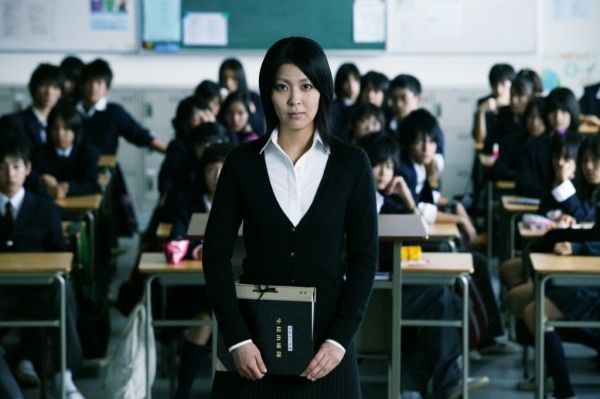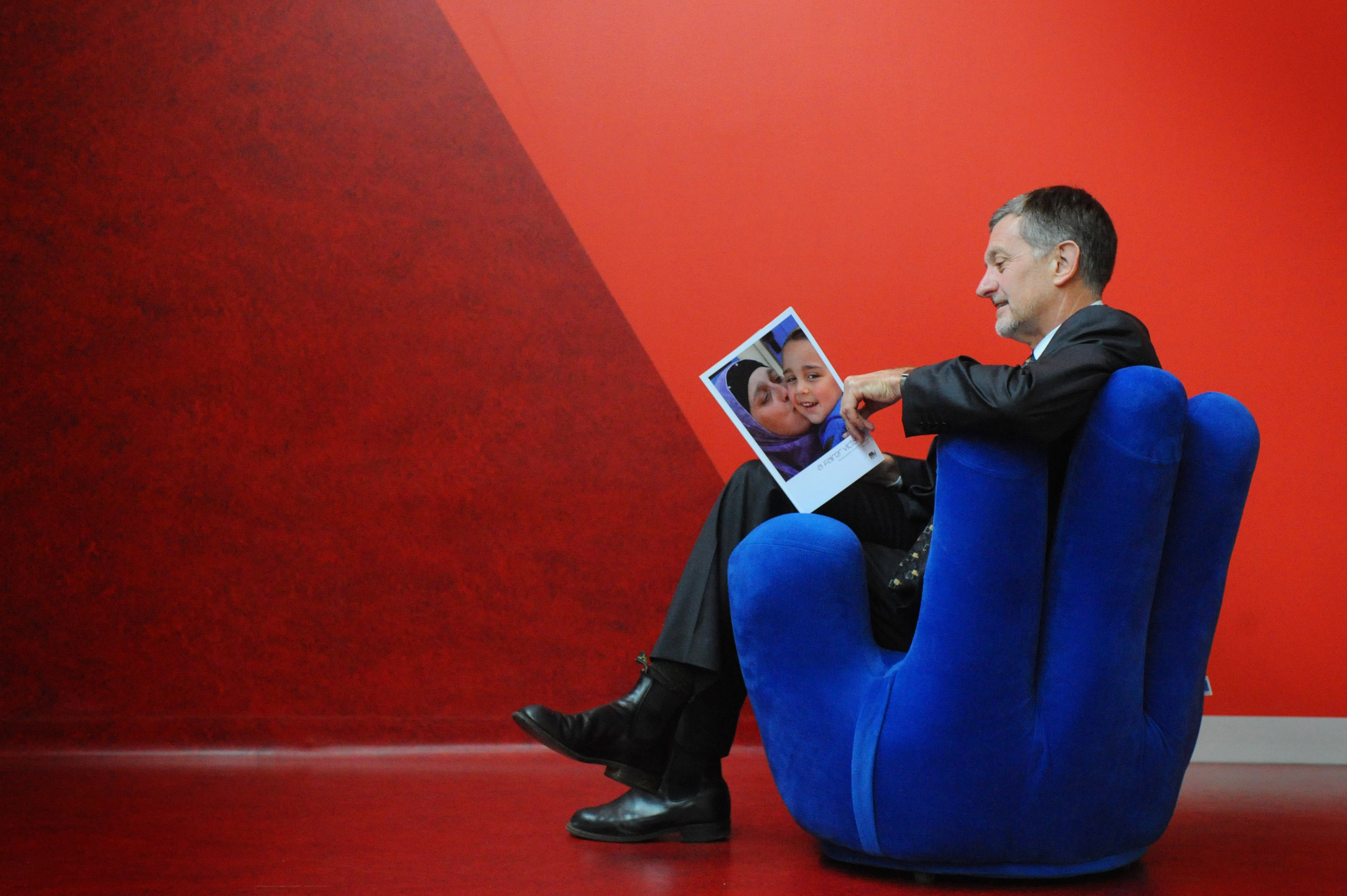Pop culture has had its field day popularising all things Japanese in the West. You don’t have to walk far down the street to bump into a self-confessed Japanophile loving anything from Studio Ghibli to Godzilla or Seven Samurai.
Pop culture has had its field day popularising all things Japanese in the West. You don’t have to walk far down the street to bump into a self-confessed Japanophile loving anything from Studio Ghibli to Godzilla or Seven Samurai. With so much excitement circulating around the fruits of our Asiatic neighbours, the 14th Japanese Film Festival (JFF) is sure to pack cinemas once it lands in Melbourne this December.
Japanese film fought hard to build an audience and work its way into their heart. As in your typical samurai film, it was a long journey of self-discovery and determination to triumph over the stark, same-same monopoly of Western movies in Australia.
“When I came to Australia 20 years ago, there were only a few cult films shown on SBS,” recalls JFF Director, Masafumi Konomi.
“Considering that approximately 400 films are produced in Japan each year, I believed that we ought to show a wider range of Japanese films to the public; otherwise Australian people would have very limited knowledge about Japanese society or culture through Japanese cinema and therefore would not be able to judge it fairly. That was the reason I started this Japanese film festival.”
Now that more J-films are being made in the 21st century than ever before, with 821 films released in Japan in 2006, Konomi-san has his work cut out for him for this year’s JFF. Last year, Japan was the ranked the fourth highest country to have made the most feature films in a year, according to data collected by international entertainment research analysts, Screen Digest, whereas Australia was dwindling in spot number 27.
Konomi-san has hand picked some of the finest contemporary films that Japanese cinema has to offer. At this year’s JFF, the films selected won’t rely on gimmicky action figurines fighting on a densely populated city and crushing skyscrapers like blades of grass.
“Australians can learn about Japanese culture, history and society all at once by watching films at the festival. ‘Where there is a will, there is a way’ is the theme that runs through all of the films. It is all about challenge and the way Japanese people overcome difficulties and strive for a better future,” says Konomi-san.
Confessions , directed by Tetsuya Nakashima, is said to be in the running for Motion Picture Arts and Sciences Academy Awards Best Foreign Film award. Based on a best-selling novel in Japan by Kanae Minato, the movie is a suspenseful drama that follows the puzzling nature of a teacher who plans to seek vengeance on two students who murdered her daughter.
Konomi-san says that fans of the book placed great expectations on this film, making the film producers’ task to stay true to the novel a tricky business. But Konomi-san says that the movie “surpassed all expectations, gaining wide acclaim from critics and filmgoers alike.”
Isshin Inudo’s Zero Focus is another film to watch out for. The film is also based on a best-selling novel and a remake of a 1961 murder mystery film about three women who are suspiciously tied to a man who has mysteriously gone missing.
Although these darker films seem to be well received in cinemas in the Land of the Rising Sun, contemporary J-film makers haven’t forgotten their humour or endearing cultural oddities.
About Her Brother is an adorable tearjerker that follows the relationship between a brother and sister. Tetsuro is a B-grade comedian, a nobody and the black sheep of the family, which irritates Ginko enough to make her disown him. However, upon discovering that her unsuccessful brother is dying, Ginko starts to learn how to love such a weird specimen.
“Their embarrassing and self-destructive lifestyles are depicted with humour,” says Konomi-san, acknowledging the film’s crafty ability to give the audience kawaii-cute jokes, whilst foreshadowing the sad, inevitable ending of this charming tale.
Konomi-san says that humour “makes it easier for the audience to relate to and sympathise with the characters. Because of the funny moments, the film is all the more touching when the female character develops a loving and accepting relationship with their male counterpart.”
About Her Brother packed Canberra’s Arc Cinema to the rafters on its opening night last fortnight. Other JFF festival screenings in Sydney and Brisbane like Shodo Girls and Hanamizuki (Flowering Dogwood) sold out this month. With so much hype in other major cities, one can only wonder how the festival will go in Australia’s cultural capital, Melbourne.
“The Summit: A Chronicle of Stones is another one of my favourites,” says Konomi-san. “Using no computer graphics or aerial cinematography, it is a film not to be missed on the big screen. In addition, the film was shot over a period of two years in chronological order. This is a film that has been produced in the true Japanese spirit, going against the trend of modern filmmaking and the internet/DVD generation.”
While Konomi-san praises The Summit’s innovativeness and ability to make cinematic effects without using CGI, he has made sure to pay homage to Japan’s legacy for revolutionising full-length animation movies.
Luckily, Konomi-san has assured that anime nerds can rest easy. A short anime program will run during the festival, showing films like Time of Eve, Oblivion Island and Tokyo Marble Chocolate. There will also be an exciting forum held with Naoyoshi Shiontani, an Animation Department Director for epic films like Spritied Away and Ghost In A Shell 2: Innocence. Shiontani is also from Production I.G animation studio that made those slick Anime scenes in Kill Bill Vol 1.
Konomi-san says that, while the tools of cinema are evolving, along with Japan’s growing presence across the globe, Japanese cinema still stays true to the traditional Japanese tale.
“The cultural background and social values of each generation have changed and technology in particular has progressed, so naturally these factors have reflected or influenced each film production,” says Konomi-san.“But the traditional storyline that always pursues the complexities of human relationships is still dominant in many Japanese films. I believe that it is this focus on people and human nature that makes Japanese films unique.”
Japanese cinema is one of the oldest movie entertainment industries in the world, having existed for more than 100 years, starting back in 1897 when the first foreign cameraman set foot on Japanese soil. Even today, with the advent of the internet and pirate downloading, Konomi-san believes that Japanese cinema’s spirit will rise above these adversaries and fill rows at cinemas.
“I still think that cinema will survive, because nothing can beat the ambience of the cinema and watching the dynamic actions and scenery come towards you from the big screen. There is also the togetherness that you experience from watching a film with other people, sharing the exciting and touching moments in the same room. These are enjoyments that you would not get out of a film downloaded to a computer and that is why I think that people will always go back to the movies.”
The Japanese Film Festival starts screening at ACMI from Thursday December 2-7.Tickets are $15 or $13 concession ($11 for ACMI members) or $60 for Five-Film Passes. Tickets can be purchased at http://www.acmi.net.au/tickets.

